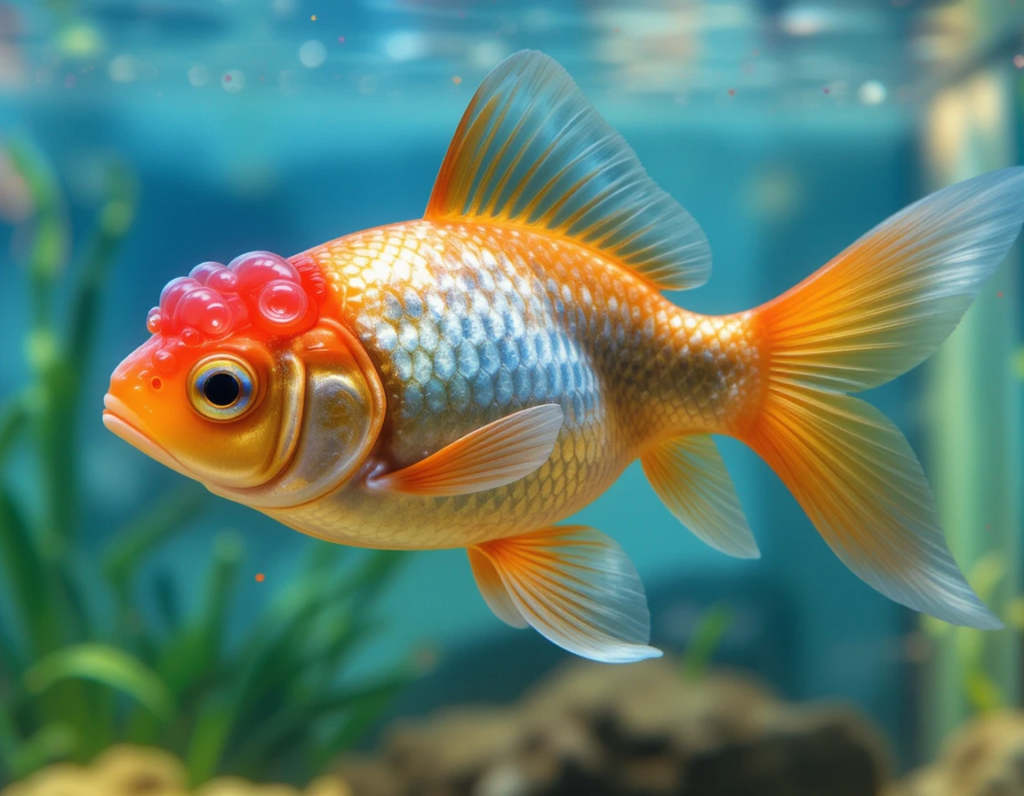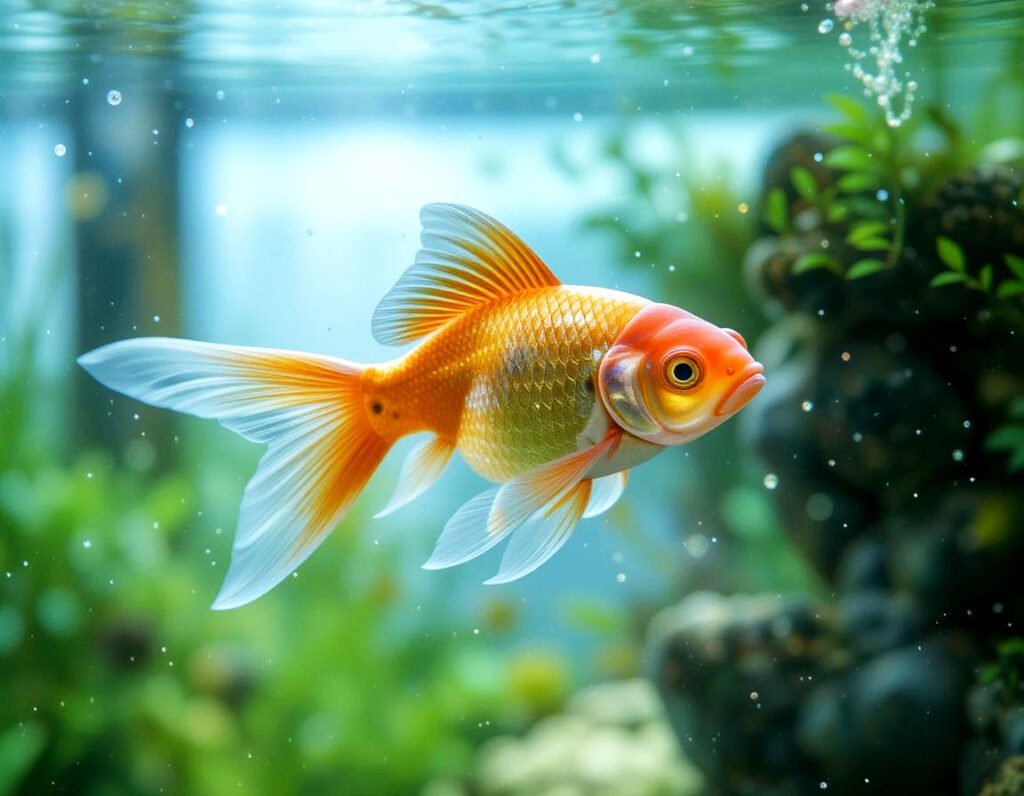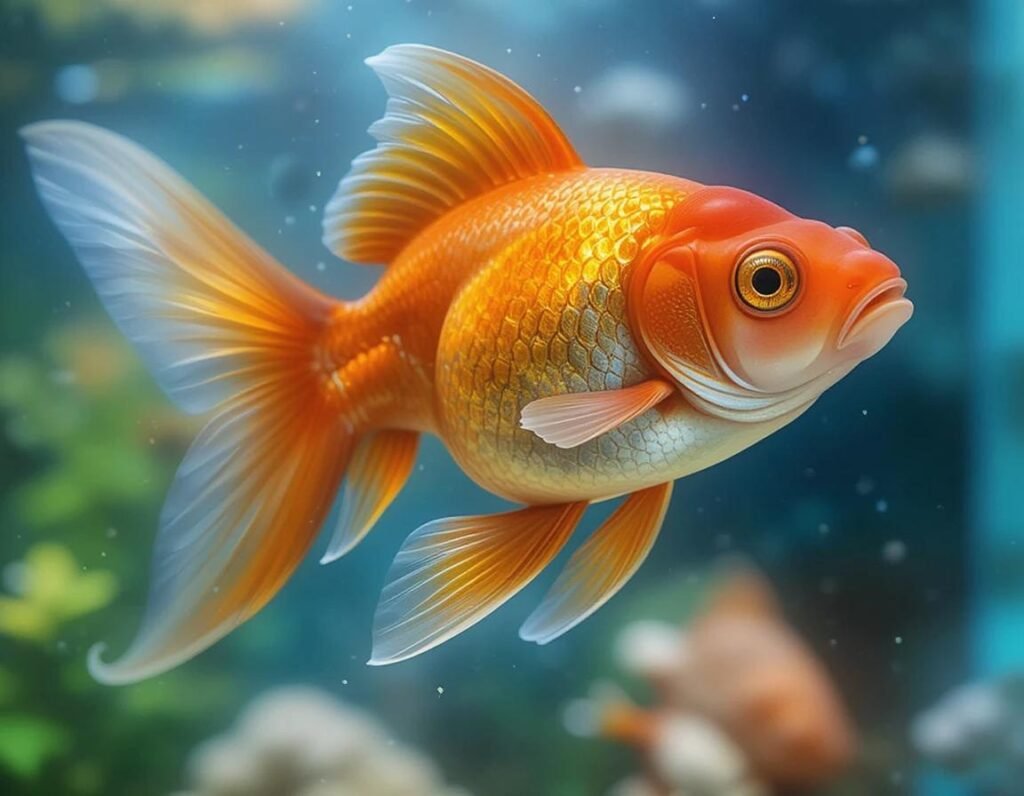
Signs of Stress in Goldfish: How to Tell If Your Finned Friend is Feeling Blue
Goldfish are generally pretty chill creatures, but just like us, they can get stressed out too. Whether it’s because of a sudden temperature change or a misunderstanding with a tank mate, stress can affect their health and happiness. So, how do you know when your goldfish is feeling a little off? Don’t worry—we’ve got you covered with some classic stress signs to watch for. Let’s dive in!
1. Erratic Swimming or Staying at the Bottom
Goldfish are usually graceful swimmers, gracefully gliding through the water like they’re in a ballet performance. But when they’re stressed, they might start darting around wildly like they’re in a race with no finish line. Alternatively, they may hang out at the bottom of the tank for hours, looking like they’ve given up on life (we’ve all been there). If you see this, it could mean they’re feeling unsafe or uncomfortable.
What to Do:
Check if anything in the tank is scaring them—like too much noise, a new tank mate, or even an aggressive filter. Also, ensure the water temperature and quality are in the right range, as sudden changes can make them feel like they’ve been thrown into a fishy version of a horror movie.
2. Gasping at the Surface
When goldfish are stressed, they might start hanging near the surface of the tank, gulping for air like they’ve just run a marathon. This is often a sign that the oxygen levels in the water are too low. Fish need a good supply of oxygen to keep their gills happy and healthy, so make sure your tank is properly aerated.
What to Do:
Consider adding an air pump or increasing water movement to improve oxygen circulation. It’s also a good idea to check the filter to make sure it’s working properly. You don’t want your goldfish feeling like they’re suffocating in their own home!
3. Clamped Fins
Goldfish are pretty flamboyant with their fins—they love to flaunt them and swim majestically with them spread wide. But when they’re stressed, their fins might stay close to their body, as if they’re trying to look small and hide. If you notice this behavior, your goldfish may be experiencing discomfort or anxiety.
What to Do:
Check for possible injuries, poor water quality, or tank mates that might be bullying your fish. If everything seems okay but the fin-clamping persists, consider consulting a vet to rule out illness.
4. Fading Colors
One of the more dramatic signs that your goldfish isn’t feeling its best is a dulling or fading of its bright colors. Healthy goldfish are usually bright orange, gold, or even red, but stress can cause them to lose their sparkle. If your fish looks like it’s been through a wash cycle without detergent, something’s definitely off.
What to Do:
Test the water for ammonia, nitrate, and nitrite levels—these are the usual culprits when it comes to stressed-out fish. Also, make sure your goldfish is getting the right kind of food to support their vibrant color. A high-quality goldfish pellet should do the trick!
5. Excessive Hiding
Goldfish are known for being friendly and social, always hanging out near the surface and swimming around to check things out. But if your goldfish is spending all its time hiding in a corner, behind plants, or near decorations, it could be stressed and trying to escape from something.
What to Do:
Check the tank setup to make sure there are no aggressive fish. If you have any aggressive tank mates, consider moving them to another tank. Adding more hiding spots and plants can also help your goldfish feel safer.
6. Flashing or Scratching Against Objects
If you see your goldfish rubbing or flashing its body against rocks, decorations, or even the glass, it could be a sign of irritation or discomfort. This behavior is often associated with parasites, infections, or skin irritation. Think of it as your fish’s way of saying, “I’ve got an itch I can’t scratch.”
What to Do:
Examine your goldfish for signs of external parasites or lesions on its body. If you suspect an infection or skin problem, it might be time for a trip to the vet or to treat the tank with aquarium-safe medication.
7. Loss of Appetite
A stressed-out goldfish may decide that food is the last thing on its mind. If your fish suddenly refuses to eat its meals, it’s time to pay attention. A goldfish that refuses food may be signaling that something is wrong, whether it’s a health issue or a stressful tank environment.
What to Do:
Check the water quality and make sure the temperature is stable. If the environment seems okay but the appetite doesn’t come back, consider visiting a vet to rule out health issues.
8. Excessive Breathing or Gasping at the Surface
If your goldfish is swimming to the surface and gulping for air more than usual, this could be a sign that it’s struggling with the oxygen levels in the water. While goldfish are hearty little swimmers, they still need good oxygenation to stay happy and healthy. Stress can lead them to seek oxygen at the surface, like they’re looking for fresh air after running a marathon.
What to Do:
Make sure your filter is working properly and that your tank is adequately aerated. Adding a small air pump can help boost oxygen circulation in the tank. If you have a lot of organic matter in the water (like uneaten food or excess fish waste), that can reduce oxygen levels too, so regular cleaning is key.
9. Visible Physical Symptoms: Scales Raised or Body Lumps
Stress in goldfish can sometimes manifest physically. If your goldfish develops raised scales, body lumps, or any visible spots, it may be suffering from an infection, parasite, or stress-related issue. Think of it like when we start breaking out due to stress—except the fish version involves bumps on their bodies rather than pimples!
What to Do:
Inspect your goldfish closely for any unusual markings, bumps, or lesions. If you see signs of an infection, you may need to treat your goldfish with medication specifically designed for aquarium fish. If the problem persists, it’s best to consult a vet specializing in fish.
10. Tail or Fin Rot
When goldfish are stressed, their immune systems can weaken, making them more susceptible to bacterial infections like tail or fin rot. If your goldfish starts developing frayed or discolored fins, it’s a sign that something isn’t quite right.
What to Do:
Perform a water quality test to ensure the environment is optimal. If the water’s fine and the issue persists, you may need to treat your fish with a special medication. Tail rot is usually treatable, but the sooner you act, the better your chances are of restoring your fish’s health.
11. Behavioral Changes: Lethargy or Hiding
Goldfish are usually active and curious, swimming around and exploring their environment. If your goldfish starts to act unusually lethargic, hiding in the corners, or staying still for long periods, it could be stressed, sick, or simply not happy with its living conditions. Imagine if you were suddenly stuck in a tiny room—wouldn’t you want to take a nap, too?
What to Do:
Check the water temperature, make sure there’s nothing wrong with the filtration system, and observe the tank for any stressors (like aggressive tank mates). Adding more plants or decorations can also help your goldfish feel more secure. It’s like giving them their own personal spa retreat.
How to Keep Your Goldfish Stress-Free
- Maintain Tank Hygiene: Regular water changes and filtration are a must to prevent toxins from building up. You wouldn’t want to live in a dirty house, and neither would your goldfish!
- Avoid Sudden Temperature Changes: Goldfish are pretty adaptable, but big swings in temperature can make them feel like they’re caught in a never-ending cold shower.
- Provide Plenty of Space: Don’t overcrowd your tank! Goldfish need space to swim and explore. An overcrowded tank can lead to territorial issues and stress.
- Avoid Overfeeding: It’s tempting to shower your goldfish with food, but overfeeding can lead to water quality problems and stress. Stick to a healthy feeding schedule.
- Peaceful Tank Mates: If you have other fish in the tank, make sure they get along! Goldfish are friendly, but aggressive tank mates can turn the tank into a battlefield.
Final Thoughts
Stress in goldfish is something you can usually prevent with a bit of attention and care. As long as you provide them with the right environment, proper nutrition, and plenty of space, your goldfish should be swimming happily around the tank like it’s their own little kingdom. So keep an eye out for those signs of stress, and don’t hesitate to make a change if things seem a little off. After all, a healthy goldfish is a happy goldfish—and a happy goldfish makes for a much more enjoyable aquatic companion!

FAQs : About Signs of Stress in Goldfish
1. What are the most common signs of stress in goldfish?
Answer: The most common signs of stress in goldfish include erratic swimming, clamped fins, excessive hiding, gasping for air at the surface, and changes in color (such as dulling or fading). They may also show signs of lethargy or scratch themselves against objects.
2. Can goldfish recover from stress?
Answer: Yes, goldfish can recover from stress if the underlying cause is identified and addressed. This might involve improving water quality, adjusting the tank environment, or removing stressors like aggressive tank mates. Giving them time and a peaceful environment can help them bounce back.
3. Can poor water quality cause stress in goldfish?
Answer: Absolutely! Poor water quality is one of the leading causes of stress in goldfish. High levels of ammonia, nitrites, or nitrates, as well as fluctuating temperatures, can make your goldfish uncomfortable. Regular water testing and maintenance are essential to prevent this.
4. How do I know if my goldfish is stressed because of temperature changes?
Answer: Goldfish are sensitive to sudden changes in water temperature. If your goldfish starts gasping at the surface, has clamped fins, or is lethargic, temperature fluctuations might be the cause. Keep the water temperature steady and within the ideal range of 65°F to 72°F (18°C to 22°C).
5. Can goldfish stress out from other fish in the tank?
Answer: oldfish are sensitive to sudden changes in water temperature. If your goldfish starts gasping at the surface, has clamped fins, or is lethargic, temperature fluctuations might be the cause. Keep the water temperature steady and within the ideal range of 65°F to 72°F (18°C to 22°C).
6. Why is my goldfish staying at the bottom of the tank?
Answer: oldfish are sensitive to sudden changes in water temperature. If your goldfish starts gasping at the surface, has clamped fins, or is lethargic, temperature fluctuations might be the cause. Keep the water temperature steady and within the ideal range of 65°F to 72°F (18°C to 22°C).
7. Can stress cause my goldfish to lose its appetite?
Answer: Yes, stress can make your goldfish lose interest in food. If your goldfish isn’t eating, check the water conditions, the tank’s environment, and whether there are any potential stress factors. Once these issues are resolved, your goldfish should return to its usual feeding habits
7. Can stress cause my goldfish to lose its appetite?
Answer: Yes, stress can make your goldfish lose interest in food. If your goldfish isn’t eating, check the water conditions, the tank’s environment, and whether there are any potential stress factors. Once these issues are resolved, your goldfish should return to its usual feeding habits
8. What should I do if my goldfish is flashing or rubbing against objects?
Answer: Flashing (when a fish scrapes or rubs itself against objects in the tank) can indicate stress, irritation, or a parasitic infection. If your goldfish is doing this, it’s important to check the water quality and inspect your fish for signs of external parasites or injuries. Treatment with aquarium-safe medications may be necessary.
9. Is it normal for my goldfish to hide in plants?
Answer: While goldfish are generally social and curious, they do need their personal space. Hiding in plants can be a sign that your goldfish is feeling stressed, especially if it’s doing so excessively. Adding more hiding spots can help them feel secure, but if the behavior is extreme, check for stressors like tankmates or poor water quality.
10. How can I reduce stress in my goldfish?
Answer: To reduce stress in your goldfish, maintain excellent water quality, provide a stable environment (temperature, pH, and lighting), and avoid overcrowding. Ensure that the tank has plenty of hiding spots and peaceful tank mates. Also, feed your goldfish a balanced diet and avoid sudden changes in the tank setup. The more comfortable they are, the less stressed they’ll be.


